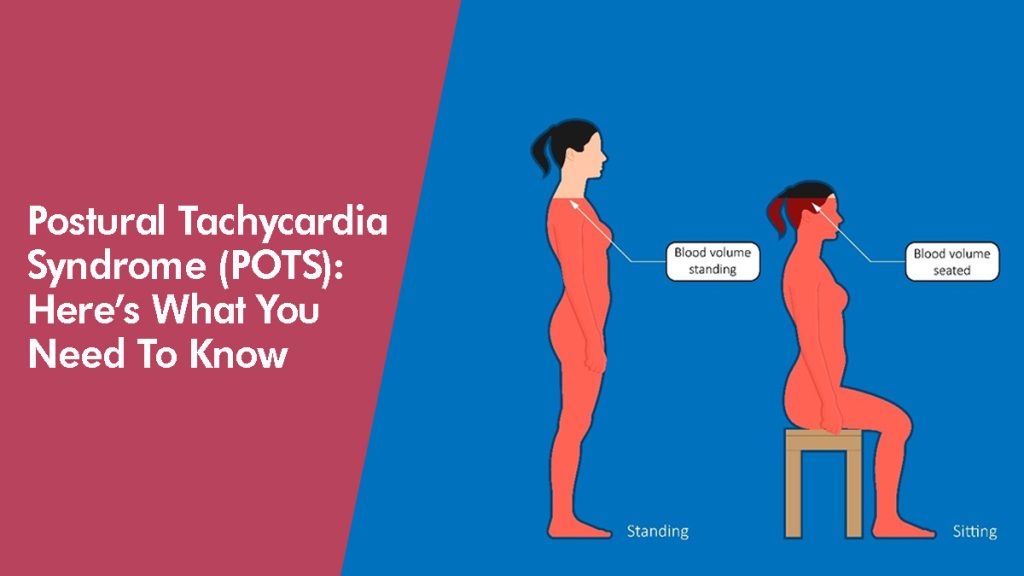Postural tachycardia syndrome or POTS is one of the common diseases that affect the heart. A person suffering from POTS experiences an abnormal increase in the heartbeat when sitting up or standing.
What’s POTS?
Post Tachycardia Syndrome, POTS or also known as postural orthostatic tachycardia syndrome is a common heart disease. A person suffering from it goes through episodes of dizziness and fainting due to increased breathing and pressure experienced while sitting up or standing.
As stated by numerous cardiologists in Dubai, it’s common in people; however, more common in females aged 15 to 50. Even though some people may only experience mild symptoms, in some people it can affect the quality of life. It gets better over the years and several medications can be used for improving the condition.
What Happens With POTS?
A person experiences a gravity pull every time they sit up or stand. However, during this gravity pull, the blood vessels carrying blood get narrowed and the heart raises the blood pressure slightly. This happens to ensure that the brain and heart keep receiving blood irrespective of what the physical activity body is doing.
The nervous system of the body, which executes this automatically, controls this entire activity. However, a person suffering from POTS faces issues with the nervous system. As a result, the heart doesn’t raise the blood pressure enough to keep an adequate supply to the brain and the heart itself.
Ultimately, this leads to the person feeling dizzy or fainting. Resulting from this, the heart races to accommodate the dire need for blood supply.
What Are Its Symptoms?
Here are some of the symptoms of POTS:
- Dizziness or lightheadedness
- Fainting
- Brain fog or problem of thinking, memory retention, and concentration
- Shaking and sweating
- Heart palpitations (racing and pounding sensation)
- Headaches and poor sleep
- Chest pain
- Shortness of breath
People suffering from POTS experience some of these symptoms. In addition to these, one can also experience worsening of their symptoms while exercising, eating, or engaging in strenuous activities.
What Are The Causes Of POTS?
Although the primary cause of POTS is the problem with the nervous system that isn’t able to calibrate the requirements of the body. However, some additional causes that one can develop POTS from include:
- Underlying conditions such as diabetes, cancer, etc.
- Poisoning from alcohol or certain metals
- Faulty gene acquisition
- Hypermobile Ehlers-Danlos syndrome (condition of rare inherited tissue problem
How To Treat POTS?
Even though there are self-care means by which you can treat POTS, you’ll need to seek professional care in case the symptoms worsen. Here are some ways for treating POTS:
1. Treating An Episode
An episode is a short-term occurrence of the problem. This happens when the person suffering from POTS sits up or stands. To minimize the occurrence of POTS here, one can:
- Lie down with legs placed on an object, keeping it slightly elevated than the head. This allows more blood to flow towards the heart and the brain.
- Clenching fists, crossing legs in front of each other while standing, or clenching your buttocks and tummy. All these activities minimize blood flow to your lower body while standing.
2. Reducing Symptoms
Here’s how you can minimize the occurrence of POTS:
- Drink fluids.
- Keep an active lifestyle so as to make sure your blood flow is managed. Rowing, running, etc. can help develop great control over your symptoms.
- Ensure to keep your head elevated while sleeping instead of sleeping horizontally.
- Avoid standing for so long and wear compression clothing.
- Don’t stand immediately. Rather sit comfortably and then stand to help your heart calibrate blood flow.
- Avoid caffeine and alcohol
- Add salt to your diet. However, many heart specialists in Dubai don’t recommend adding too much in your diet as it would increase your blood flow more than needed.
Seeking Medical Help
If you’re having trouble with the symptoms, it’s perhaps best to seek professional help from the best heart doctors in Dubai. Not only will your cardiologist diagnose the proper reason for the elevation of your symptoms but will also advise proper medication and treatment accordingly.

